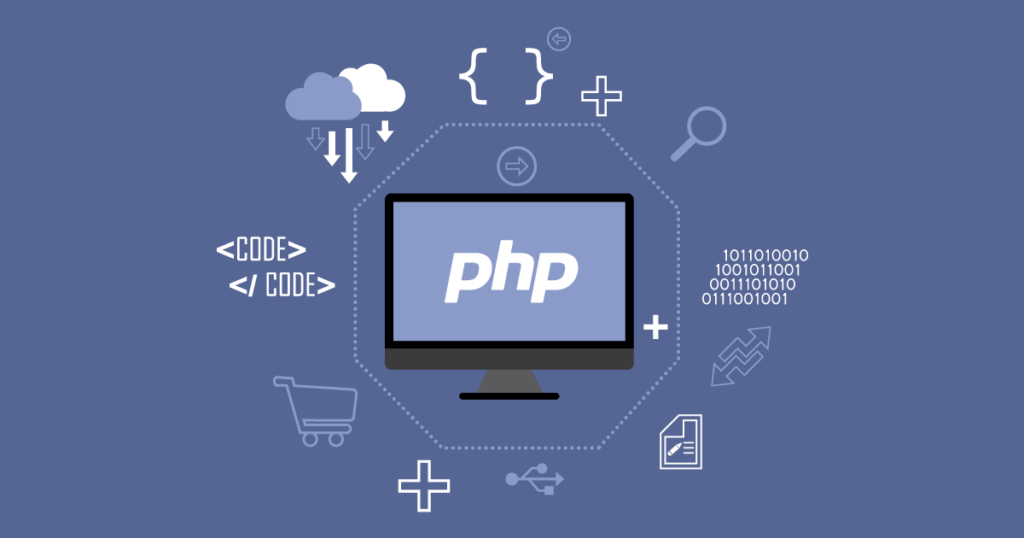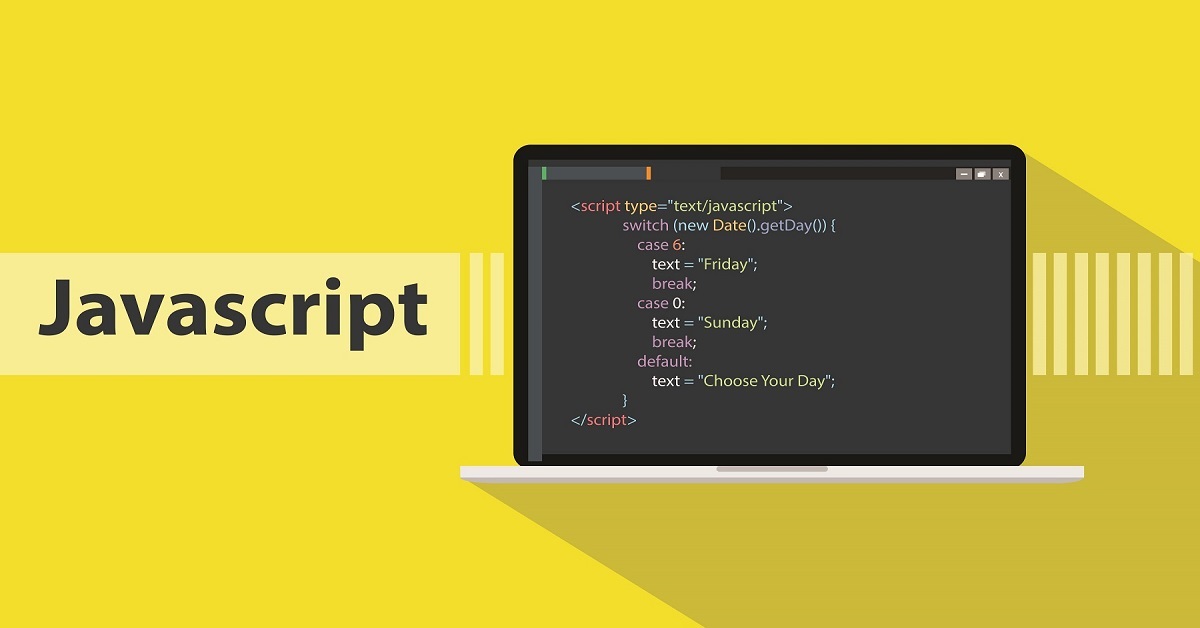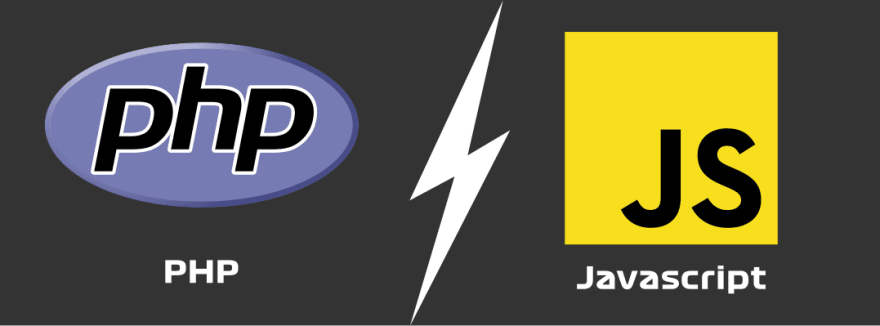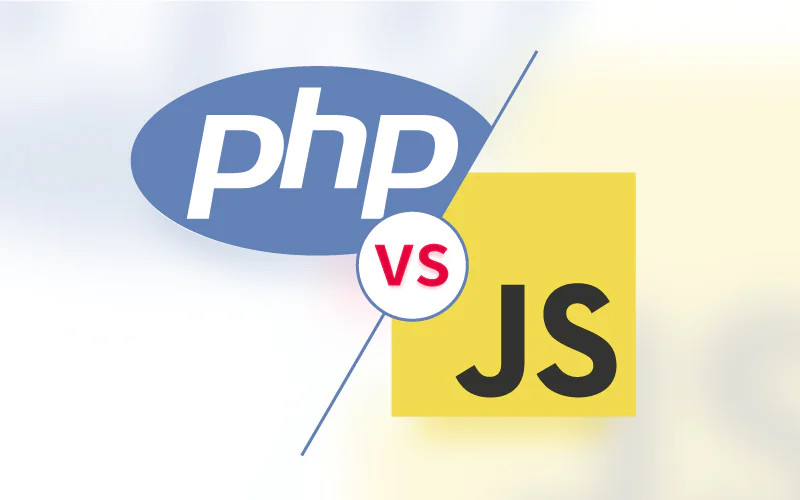In the ever-evolving landscape of web development, choosing the right programming language can be the foundation of a successful project. Two of the most prominent contenders in this arena are PHP and JavaScript. But with both boasting unique strengths and functionalities, it can be a challenge to decide which one aligns best with your specific goals. This guide delves into the comparison of JavaScript vs PHP, empowering you to make an informed decision. We’ll explore their strengths, ideal use cases, and the factors to consider when making your choice.
Understanding PHP and JavaScript
- PHP (Hypertext Preprocessor): Imagine a skilled puppeteer working behind the scenes on a web server. PHP, a server-side scripting language, executes on the server before the final web page is delivered to your browser. It’s the engine that generates dynamic content, interacts with databases, and handles user sessions (like keeping you logged in).
- JavaScript: This client-side scripting language operates directly within your web browser, making web pages dynamic and interactive. It’s like having a script director right there on your device! JavaScript manipulates the elements on a web page, enabling features like animations, user input validation, and real-time updates without reloading the entire page.
Strengths of PHP:
- Server-Side Muscle: When it comes to generating dynamic content, interacting with databases, and handling user sessions, PHP takes center stage. It seamlessly retrieves information from databases, tailors web pages based on user input, and ensures a smooth user experience by managing logins and session data.
- Vast Community and Resources: The world of PHP development is brimming with resources to make your journey easier. There’s a wealth of tutorials, frameworks like Laravel to streamline development, and libraries that extend functionalities. This extensive support system makes PHP a great choice for beginners or those seeking a quick start on their project.
- Beginner-Friendly: With its relatively simpler syntax and abundance of learning materials, PHP offers a gentle slope for aspiring web developers. The easier learning curve allows you to grasp the fundamentals of web development without getting bogged down in complex syntax.
Strengths of JavaScript:
- Interactive Web Experiences: JavaScript is the magic behind those cool animations, dynamic interfaces, and seamless user interactions that we’ve come to expect from modern web experiences. It allows you to create responsive web pages that adapt to different screen sizes and devices, making your website user-friendly and engaging.
- Front-End Framework Powerhouse: Frameworks like React, Angular, and Vue.js have become the building blocks of modern web development, and they all rely heavily on JavaScript. By leveraging these frameworks, you can streamline the development process, create reusable components, and ensure a consistent user experience across different web pages.
- Versatile Performer: JavaScript isn’t confined to the client-side. With the rise of Node.js, JavaScript can now venture onto the server-side as well. This expanded functionality allows for the creation of real-time applications and data streaming, making JavaScript a truly versatile language.
JavaScript vs PHP: A Head-to-Head Comparison
While both languages play crucial roles in web development, they excel in different areas. Here’s a breakdown of their key distinctions:
- Execution Environment: PHP operates on the server, running behind the scenes to generate content before it reaches your browser. JavaScript, on the other hand, lives within your web browser, directly manipulating the elements you see on the screen.
- Functionality: PHP shines in creating dynamic content, interacting with databases to retrieve information, and handling user sessions. JavaScript focuses on crafting interactive experiences, like animations and user input validation, that enhance the user experience on the web page itself.
- Learning Curve: For beginners, PHP offers a gentler learning slope due to its simpler syntax and abundance of learning materials. JavaScript can have a steeper learning curve, but powerful frameworks like React can simplify the process.
- Community & Resources: Both languages boast large and supportive communities. PHP benefits from a wealth of tutorials, frameworks, and libraries, while JavaScript enjoys a constantly growing pool of resources and a strong emphasis on frameworks for streamlined development.
When to Choose PHP:
- Content-Driven Websites: If your project revolves around creating dynamic content that is frequently updated, PHP’s ability to interact with databases makes it an excellent choice. This could be anything from a news website or blog to an e-commerce platform where product information and user data need to be managed effectively.
- E-commerce Applications: PHP’s strengths in handling user sessions, shopping carts, and secure transactions make it a popular language for building e-commerce applications. Its database interaction capabilities streamline product management, order processing, and customer accounts.
- Legacy Systems Integration: Many older websites were built using PHP. If you’re working on a project that needs to integrate with an existing PHP codebase, choosing PHP ensures compatibility and simplifies the development process.
When to Choose JavaScript:
- Single-Page Applications (SPAs): JavaScript is the driving force behind SPAs, web applications that load a single HTML page and dynamically update the content without reloading the entire page. This creates a seamless and responsive user experience, ideal for modern web applications.
- Interactive Web Features: If your website relies heavily on user interaction, animations, or real-time updates, JavaScript is your go-to language. It allows you to create dynamic elements, validate user input, and build engaging interfaces that keep users glued to your website.
- Front-End Development: For projects that focus on the visual elements and user experience of a website, JavaScript reigns supreme. Frameworks like React and Angular make front-end development efficient and scalable, allowing you to build complex user interfaces with reusable components.
- Hybrid Mobile Apps: With frameworks like React Native and Ionic, JavaScript can be used to develop mobile applications that run on both Android and iOS devices. This allows you to create a single codebase for both platforms, saving time and resources.
Choosing the Right Tool for the Job:
Ultimately, the best choice between JavaScript vs PHP hinges on your specific project requirements. Here’s a quick recap to guide your decision:
- Focus on server-side logic, database interactions, and dynamic content generation? PHP is your champion.
- Prioritize user experience, interactive elements, and front-end development? JavaScript is your web knight.
Beyond the Binary: Combining Forces
While we’ve been exploring PHP and JavaScript as separate entities, the real magic happens when they join forces. Imagine a well-oiled machine: PHP, the server-side powerhouse, meticulously handles tasks behind the scenes, generating content, interacting with databases, and ensuring everything runs smoothly. Meanwhile, JavaScript, the client-side maestro, takes center stage in your web browser, crafting dynamic and interactive experiences that keep users engaged.
This powerful combination creates a cohesive web development environment. PHP lays the foundation, providing the data and functionality, while JavaScript brings it all to life with a user-friendly and interactive interface. By leveraging the strengths of both languages, you can create truly exceptional web applications.
Conclusion
Ultimately, the choice between JavaScript vs PHP depends on your specific project requirements. But here’s the exciting secret: they don’t have to be mutually exclusive! By combining PHP’s server-side muscle with JavaScript’s interactive magic, you can create a truly dynamic and engaging web experience.
OnextDigital is a full-service web development agency that can help you leverage the power of both PHP and JavaScript. We offer a wide range of services to bring your vision to life, including Web Development Service, Mobile App Development, UX/UI Design Service, White label software service, and CRM & auto marketing implement service. Let OnextDigital guide you through the process of choosing the right technology stack and crafting a web solution that exceeds expectations. Contact us today for a free consultation!








